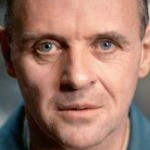Post by nictoe on May 15, 2023 5:41:38 GMT -8
There'd be NO Sean Hannity, NO Glenn Beck, NO Rush Limbaugh.
America’s love affair between the automobile and AM radio — a century-long romance that provided the soundtrack for lovers’ lanes, kept the lonely company with ballgames and chat shows, sparked family singalongs and defined road trips — is on the verge of collapse, a victim of galloping technological change and swiftly shifting consumer tastes.
The breakup is entirely one-sided, a move by major automakers to eliminate AM radios from new vehicles despite protests from station owners, listeners, first-responders and politicians from both major parties.
The breakup is entirely one-sided, a move by major automakers to eliminate AM radios from new vehicles despite protests from station owners, listeners, first-responders and politicians from both major parties.
Some station owners and advertisers contend that losing access to the car dashboard will indeed be a death blow to many of the nation’s 4,185 AM stations — the possible demise of a core element of the nation’s delivery system for news, political talk (especially on the right), coverage of weather emergencies and foreign language programming.
“This is a tone-deaf display of complete ignorance about what AM radio means to Americans,” said Michael Harrison, publisher of Talkers, a trade journal covering the talk radio industry. “It’s not the end of the world for radio, but it is the loss of an iconic piece of American culture.”
For the first hundred years of mass media, AM radio shaped American life: It was where Franklin D. Roosevelt delivered his fireside chats; where a young Ronald Reagan announced Chicago Cubs baseball games; where DJs such as Wolfman Jack along the U.S.-Mexico border, Larry Lujack in Chicago, Alan Freed in Cleveland, “Cousin Brucie” Morrow in New York City and Don Imus in California, Texas, Ohio and New York howled, growled and shouted out the latest pop hits.
For the first hundred years of mass media, AM radio shaped American life: It was where Franklin D. Roosevelt delivered his fireside chats; where a young Ronald Reagan announced Chicago Cubs baseball games; where DJs such as Wolfman Jack along the U.S.-Mexico border, Larry Lujack in Chicago, Alan Freed in Cleveland, “Cousin Brucie” Morrow in New York City and Don Imus in California, Texas, Ohio and New York howled, growled and shouted out the latest pop hits.



